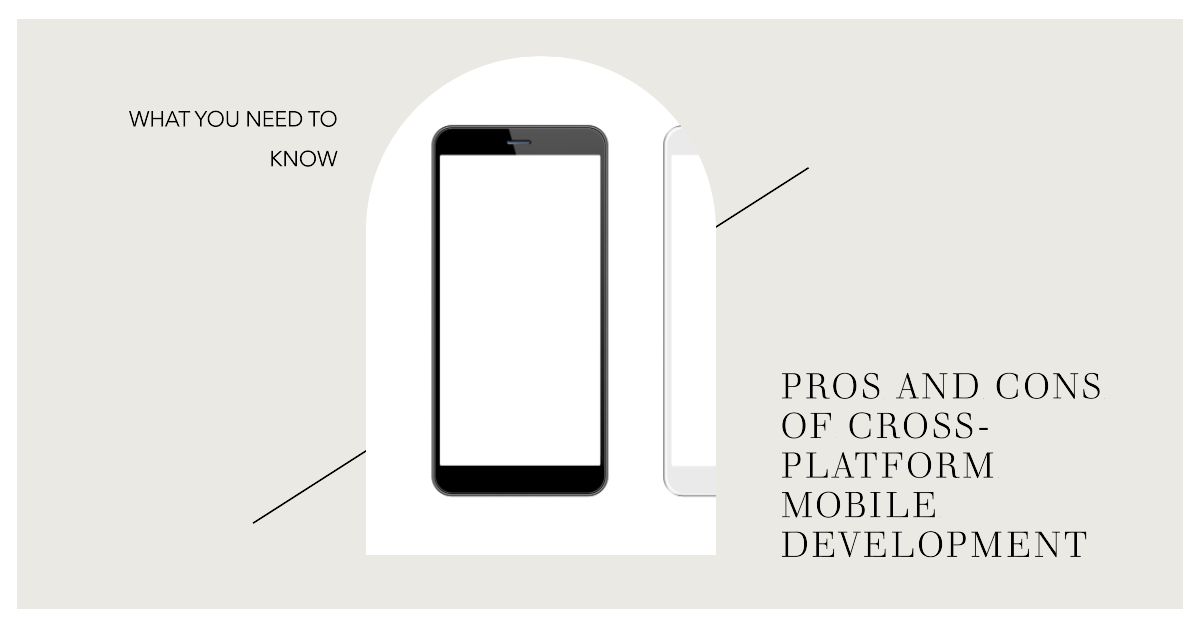Pros and Cons of cross-platform Mobile Development
Are you considering building your next mobile app using a cross-platform approach but feeling a bit confused? Don’t worry, we’ve got you covered! In this blog post, we will provide you with a comprehensive list of the pros and cons of cross-platform app development. This will help you make an informed decision about whether this approach is the right choice for your app development needs.
In today’s fast-paced world, smartphones have become an integral part of our lives. We rely on mobile apps for various tasks, such as finding restaurants, shopping, booking tickets, and connecting with friends and family through social media. Imagine if your favorite apps like WhatsApp, Instagram, or Amazon were only available on one platform and not the other. In a highly competitive market, businesses understand the importance of having a presence on both iOS and Android platforms. That’s why many are turning to cross-platform app development to expand their reach.
So, what exactly is cross-platform mobile app development? It’s an approach that allows developers to build an app that looks and feels native on both Android and iOS using just one codebase and one programming language, such as JavaScript.
Why should you choose cross-platform app development? Recent market research shows that the US consumer market is evenly divided between Apple and Android devices, with about 47% using Apple and 52% using Android. With such a large market share for both platforms, it’s clear that neither should be overlooked when developing apps. Cross-platform app development enables businesses to target both platforms effectively.
Let’s explore the benefits of cross-platform app development:
Code Reusability: One of the major advantages of cross-platform development is code reusability. Developers can write code once and use it for both iOS and Android app development, saving time and effort.
Faster Development: By eliminating the need to rewrite code from scratch, cross-platform development accelerates the entire app development process. This approach allows developers to complete projects quickly and achieve faster delivery times compared to native development.
Greater Market Reach: Native app development often faces the limitation of limited reach. Cross-platform development enables app owners to launch the same app on multiple platforms, expanding their user base and market reach.
Wider Audience Reach: With cross-platform app development, you have the flexibility to build your app for both iOS and Android platforms, reaching a larger audience simultaneously. You can market your app on Apple Store and Google Play Store, tapping into different user bases.
Cost-Effective Development: Cost-effectiveness is a significant advantage of cross-platform development, especially for businesses with budget constraints. Developing apps using a cross-platform approach is comparatively less expensive as a single codebase is used for both iOS and Android apps.
However, it’s important to consider the drawbacks of cross-platform app development as well:
Poor UX and UI Design: Cross-platform apps may suffer from poorer user experience and user interface design compared to native apps. Native apps are built specifically for each platform and can leverage all the in-built features of the devices, resulting in a better user experience.
Integration Issues: Cross-platform development can bring integration challenges. Integrating your app with local settings, notifications, and preferences is not as straightforward, often requiring the use of third-party cloud services, which may not be considered safe.
Lazy New Updates: Cross-platform apps may experience delays in reflecting new features introduced by operating systems. The frameworks used in cross-platform development might not immediately support the latest features, leading to slower updates.
Limited Customization: Cross-platform frameworks may restrict customization options, particularly when it comes to hardware functionality like notifications, camera, GPS, etc. This limitation could impact your ability to tailor the app to your specific requirements.
Sluggish Coding: Although cross-platform development may seem easier due to the use of a single codebase, it can still pose challenges, especially for inexperienced developers. The use of various cross-compliance during the development process can result in sluggish code, potentially leading to slower application performance.
To summarize, cross-platform app development offers numerous advantages such as code reusability, faster development, greater market reach, wider audience reach, and cost-effectiveness. However, it also comes with drawbacks like poorer UX/UI design, integration issues, delayed updates, limited customization, and potential sluggish coding.
Q: What are the benefits of cross-platform development in mobile app development?
A: Cross-platform development offers an array of benefits, including access to a wide range of development tools, faster deployment to app stores, a simplified development process, consistent look and feel across multiple platforms, broader audience reach, and lower development costs.
Q: Is it a good idea to use a cross-platform development framework for developing all mobile apps? Please explain why.
A: Yes, using a cross-platform development framework can be a good idea for developing all mobile apps, especially when time and efficiency are crucial factors. With cross-platform programming, developers don’t need to write separate code for each operating system. Using a single codebase allows developers to save time on repetitive tasks and streamline the development process, including API calls, data storage, data serialization, and analytics implementation.









